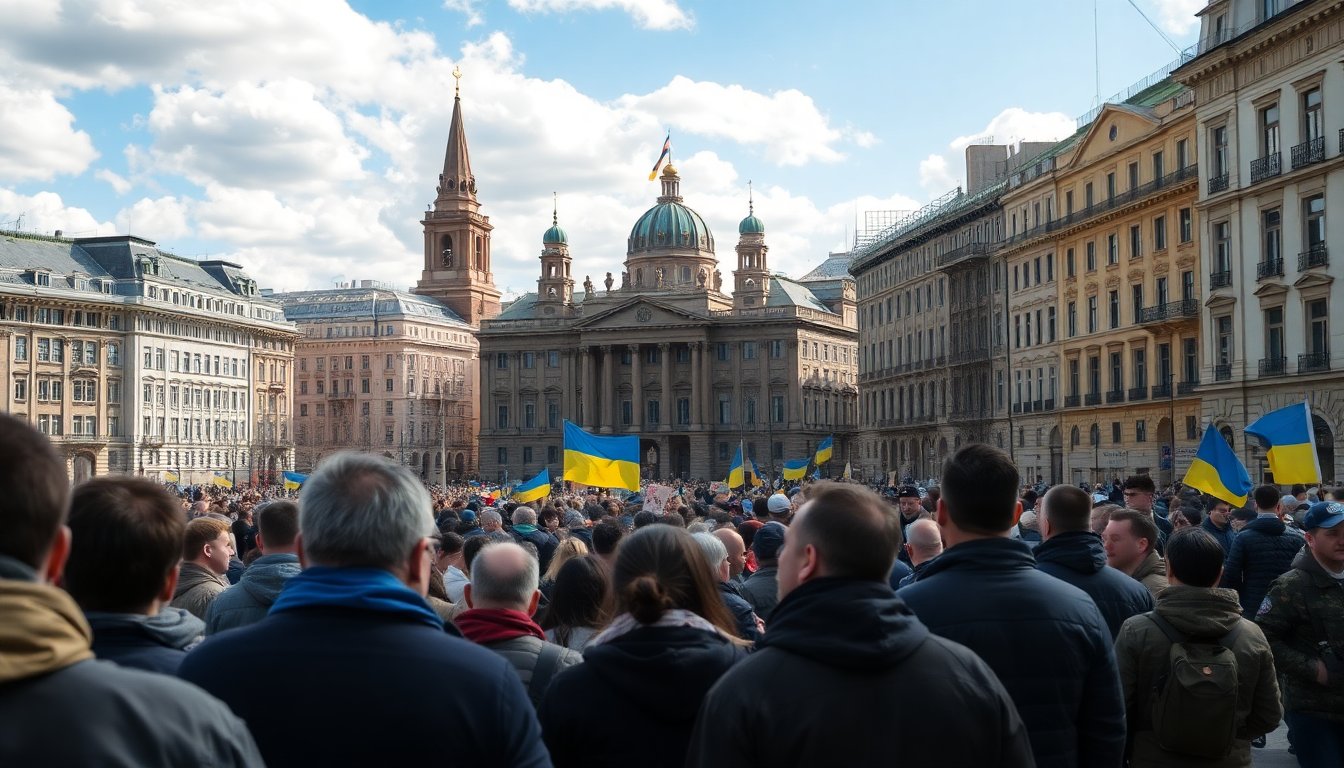Table of Contents
Since the onset of Russia’s comprehensive invasion, Ukraine has been living under martial law for nearly four years. This state of affairs has led to the suspension of democratic processes, particularly elections, which has effectively caused a stagnation in domestic politics. As the conflict continues, a notable unity has developed among the populace and political elite, rallying around President Volodymyr Zelensky. However, with the recent political climate shifting following Donald Trump‘s return to the White House and his push for a peace deal, new signs of political competition are beginning to emerge.
Emergence of political competition
During the summer, Ukraine experienced its first significant protests since the escalation of the war. Many analysts perceived these demonstrations as indicative of a thawing in the political sphere, despite the enduring state of martial law. Balázs Jarábik and Anatolii Oktysiuk from Carnegie’s Ukraine Initiative suggest that while protests signal a return to political engagement, the most critical factor influencing this shift is the Trump administration’s desire to negotiate a peace settlement. The mere discussion of ending the war inherently raises the question of elections, a topic that has been on hold due to the ongoing conflict.
The status of President Zelensky
President Zelensky’s approval ratings have fluctuated throughout the war, with his official term set to expire in May. Nonetheless, there appears to be minimal public appetite for elections during wartime. Analysts agree that there is a broad consensus among both political elites and the general public that elections can only take place after a resolution to the conflict. A sustained ceasefire might serve as a precursor to this, but until then, there is a prevailing understanding that the president, who also serves as the commander-in-chief, requires support amid the crisis.
Despite opposition voices expressing concerns regarding the concentration of power and undemocratic practices, the prevailing sentiment is to unite behind the president during the war. The conflict itself, compounded by the powers granted under martial law, has enabled the president’s office to maintain a strong grip on political dynamics. Moreover, while the single-party majority of Zelensky’s ruling party, Servant of the People, has dissipated, the administration has managed to secure necessary support from various factions for critical legislation.
Public opinion and leadership decisions
Amid the war, public opinion polls have shown interesting trends. Despite ongoing turmoil, Zelensky’s trust rating remains high, hovering around 60 percent. Interestingly, when faced with external pressures, such as the infamous Oval Office meeting with Trump, his approval ratings actually spiked. This phenomenon, often referred to as the rally around the flag effect, reflects a collective sense of support for leadership during times of crisis.
However, recent polling indicates a desire for new political faces, with only 25 percent of respondents expressing interest in another term for Zelensky. Notably, figures such as former army commander-in-chief Valerii Zaluzhnyi and military intelligence head Kyrylo Budanov are gaining traction among the public, suggesting a potential shift in political preferences as the war progresses.
The future of elections
As the situation evolves, speculation surrounding Zelensky’s intentions for re-election has become a topic of discussion. He has suggested he may not seek another term, citing his initial promise of serving only one term. However, this has become complicated due to the ongoing conflict, leaving his political future uncertain. The political landscape is indeed experiencing a gradual thaw, yet the president’s office is diligently working to manage and control political activities while prioritizing the war effort.
Various political groups are preparing for the potential of elections, but numerous technical challenges remain. The war has significantly impacted demographics, voter registries, and party structures. With millions of Ukrainians displaced, questions arise about who will be eligible to vote and where they will do so. Thus, while preparations for elections are being discussed, there is also a notable inclination to delay these plans until after the conflict has concluded.
Local governance and economic shifts
The ongoing war has also affected local governance, as evidenced by President Zelensky’s recent decision to strip Odesa Mayor Hennadiy Trukhanov of his citizenship. This action is perceived as part of a broader strategy to centralize power and assert control over local politics. Tensions between local authorities and the presidential office have been palpable since before the war, as mayors have proven effective in managing local resources and responding to community needs.
Moreover, the war has drastically altered Ukraine’s economy, with public spending heavily skewed toward defense and a growing reliance on Western aid. Such economic changes are likely to influence domestic politics moving forward. The demographic shift, with many individuals now residing beyond Ukraine’s borders, raises questions about the future political landscape and the potential for protests against government policies.
Despite the myriad of challenges, the essence of social cohesion remains intact for now, as the shared experience of the war fosters unity. However, once the conflict subsides, internal grievances may surface, leading to significant discussions about accountability and governance during wartime. The road ahead for Ukraine may be tumultuous, but the resilience of its people and leaders will undoubtedly shape its future.


